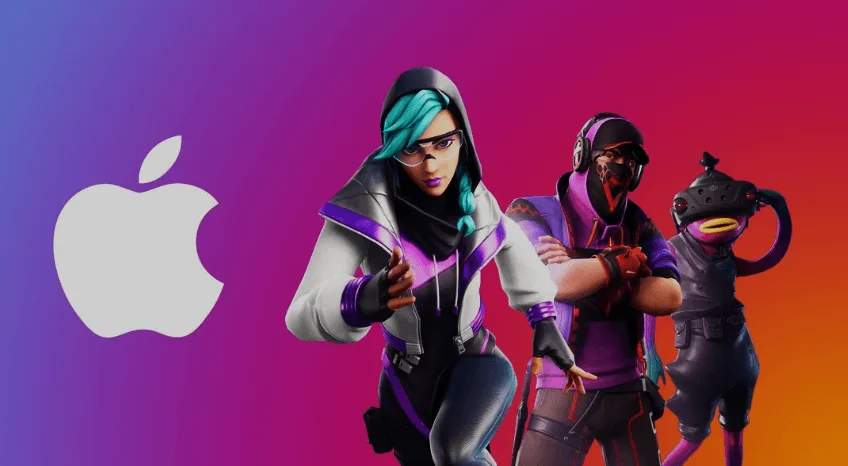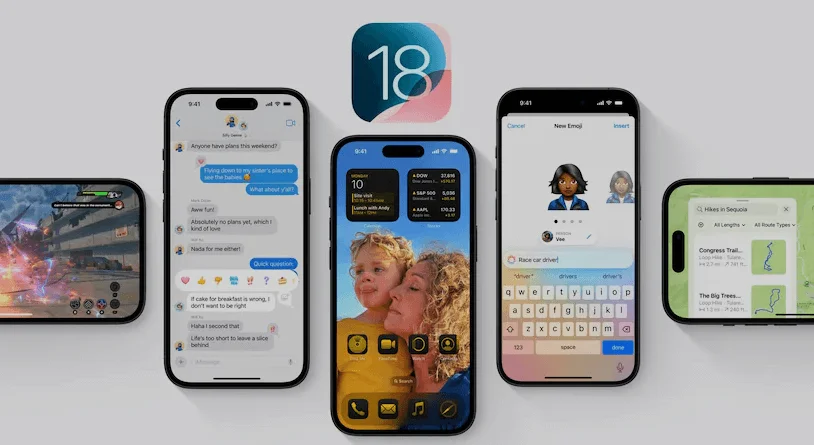Apple and Epic Games have been involved in a dramatic fight of the titans for what seems like ages, and this fight has taken yet another twist. Just when it looked like Epic Games Store could be coming to iOS for the first time, Apple has interfered with Epic’s submission over design and labeling problems. This latest development just goes to show the rigid measures that are in place at the Apple App Store or the ever-doomed love-hate relationship between Google and Apple.
Epic Games And Apple Conflict: History

The legal war between Apple and Epic Games started in August 2020 when Epic implemented a direct payment option inside Fortnite, Android game bypassing Apple’s 30% cut for in-app purchases. Apple, in its effort to prevent this, blocked the ability to make purchases using V-bucks in Fortnite through the App Store, and thus Epic filed a lawsuit against Apple for antitrust. The high-profile case has been through the courts , and appeals, and involves Apple’s domination of its App Store as well as the commission that they require developers to pay.
The Current Submission And Rejection:
Lately Epic tried to list its Epic Games Store in the Apple App Store with an intent to open its platform to the iPhone owners. Apple did not approve the submission, mainly due to design and labeling violation by the applicant. According to Epic, the rejection was based on two primary concerns:According to Epic, the rejection was based on two primary concerns:
- Design of the “Install” Button: Apple submitted the first allegation stating that Epic’s “Install” button resembled the appearance and location of Apple ‘Get’ button risking leaving the customers confused.
- In-App Purchases Label: Apple also had an issue with the name ‘In-app purchases’ that Epic used and claimed that was too close to ‘In-App Purchases’ name that Apple had used.
Epic responded to the rejection through its official Epic Newsroom account on X (formerly Twitter), stating:
“Apple has denied our twice now for notarization of the Epic Games Store, stating that our “In-app purchases” label is too similar to the App Store’s “In-App Purchases” label and that the position and design of Epic’s “Install” button is too similar to Apple’s “Get” button. We are adhering to established norms for buttons in iOS apps and adopting the same naming conventions for “Install” and “In-app purchases” that are used across prominent app stores on numerous platforms.
All of our stores already follow the regulatory best practice of disclosing in-app purchases, and our goal is to create a store that is simple enough for mobile customers to grasp. We are concerned that Apple’s denial is capricious, hindering, and against the DMA, and we have expressed this to the European Commission. Barring further roadblocks from Apple, we remain ready to launch the Epic Games Store and Fortnite on iOS in the EU in the next couple of months.“
The Regulatory Angle:
It is crucial to paying attention to what Epic has said about the Digital Markets Act (DMA). The DMA regulation is an acronyme for Digital Market Act which is a regulation of the European Union that seeks to promote fairness within the digital markets. Indeed, Epic has turned to the European Commission to claim that Apple may be violating these new regulations. This can extend regulation on Apple’s App Store further which complicates the disagreement in another way.
Implications and Future Outlook:
The current impasse between Apple and Epic Games has several implications:
- Continued Legal and Regulatory Battles: Such conflicts will create even more legal disputes and attract the attention of regulators. Unlike most firms, both the firms are financially robust to take the legal process to longer terms and thus the outcome will not be easily reached.
- Impact on Developers and Users: The deadlock is not only keen between the two firms but developers and users are equally involved. IS vendors that would like to offer their applications through the Epic Games Store on iOS remain stranded, and customers cannot access more apps and games.
- Financial Consequences: In light of this, both Apple and Epic will be parts to lose millions of dollars in potential sales should the conflict persist. Apple’s App Store has a lot of revenue coming from in-app purchases; therefore, Epic Games Store would have boosted that side of business. Likewise, Epic loses the opportunity to tap into the iOS users, who have no access to its store now.
Conclusion:
The recent court drama between apple and epic game has recently exposed yet a new twist; Apple has refused to accept Epic Games’ submission to the App Store citing that the design and labels are not appropriate. Epic has reacted by saying Apple embodies capricious and perverse behavior and has approached the European Commission seeking a violation of the DMA. This conflict has potential drastic impacts on the developers, the users and the tech world as a whole and legal tussles, changes in availability of apps and monetary repercussions among others.
In my opinion, it is correct to say that Apple’s App Store policies are anti-competitive and repressive to innovative apps and services, which makes Epic right for challenging these policies. The DMA regulation is a positive change and knowing that Epic complained may eventually result in the reconsideration of many of Apple’s actions. Would you say that Apple is too strict with its App Store policies, or are those policies beneficial due to the level of quality and security? Are you in favor of Epic fighting Apple’s decisions, or are they trying to bend the rules?
Read Also: Apple Approves Epic Games’ Marketplace App After Initial Rejections

